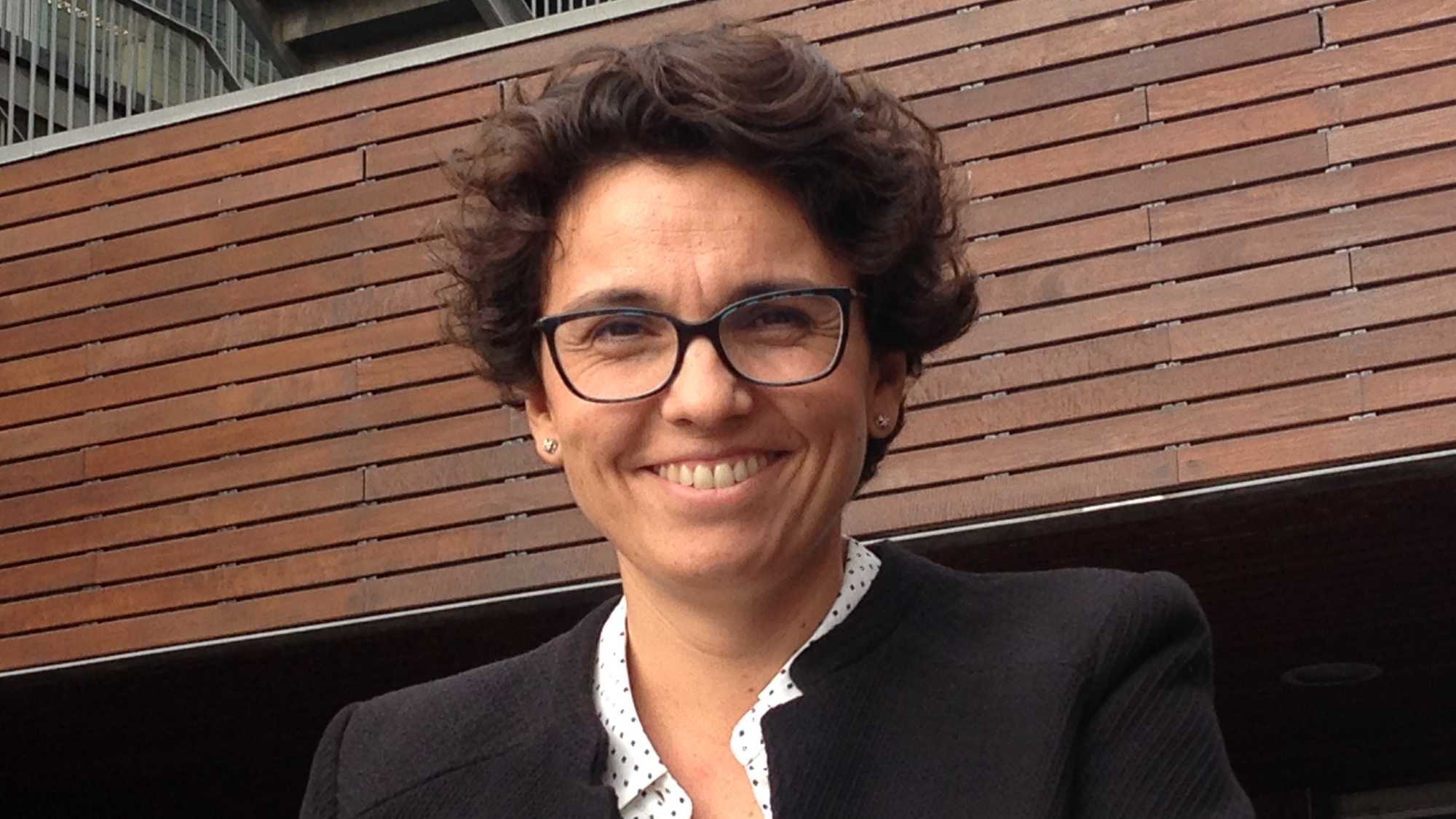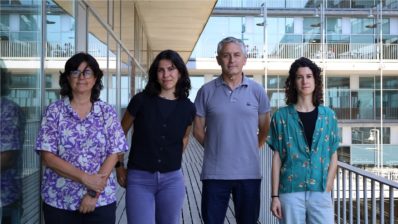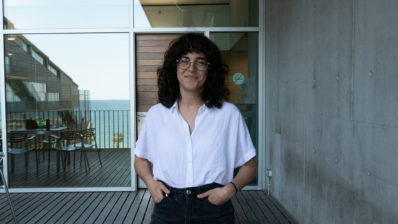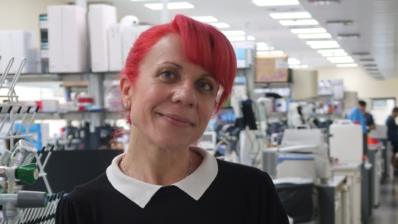Edurne Arriola (Barcelona, 1975) is the leader of the Oncology Service from the Hospital del Mar and a researcher in the Cancer Molecular Therapy group from the Hospital del Mar Medical Research Institute (IMIM). Last October 20, Edurne took part, as an expert in biomarkers, in the Immunotherapy Optimization symposium, organized by IMIM in the Barcelona Biomedical Research Park (PRBB) Auditorium.
Why this increased interest in immunotherapy from researchers?
The increased interest is due to the fact that, for the first time, we have seen very promising results within immunotherapy, especially in patients with metastatic disease, since we obtain very prolonged survival with this new treatment. Traditional treatments in this situation are beneficial, but it is always temporary and not that prolonged.
What are the main strategies based on immunotherapy that are being used nowadays?
Although there are multiple ways of doing immunotherapy, nowadays we are using the so-called checkpoint inhibitors. These drugs can release one of the brakes that the tumours are able to use in order to stop the immune system from attacking these tumour cells.
Are all treatments based on immunotherapy equally effective to fight every type of cancer?
No. There are some tumours like melanoma, lung and bladder cancer in which immunotherapy has shown to be beneficial in one subgroup within these patients. In other tumours, current immunotherapies are not offering such encouraging results, but there is active research in this field to find the best way to apply immunotherapy strategies in these diseases.
“There are some tumours like melanoma, lung and bladder cancer in which immunotherapy has shown to be beneficial in one subgroup within these patients”
Is the immunotherapy against cancer opening a door to personalized medicine?
Personalized medicine is a common aim within all the anticancer therapies, not only in immunotherapy. We are dedicating time and effort, by means of the research, to identify patients that will benefit from immunotherapy and to apply every type of immunotherapy to the patient who can get a profit from it.
Which are your lines of research in IMIM?
In lung, bladder and breast cancer there are lines of research in which the main objective is to identify the patients that can get a profit from every type of immunotherapy. We are evaluating biomarkers that can predict the benefits of immunotherapy in every type of tumour in order to avoid secondary effects in patients and also avoid an unnecessary waste in the health system.
Nowadays, can patients ask for immunotherapy treatments covered by Social Security or are these treatments still in experimental phase?
At this time there are several immunotherapeutic drugs that have shown efficacy in some tumors and that have already been approved by Social Security, and probably in the next few years some more will be approved. Also, there are many new immunotherapy drugs in development and new combinations are being tested among them or with conventional treatments.






